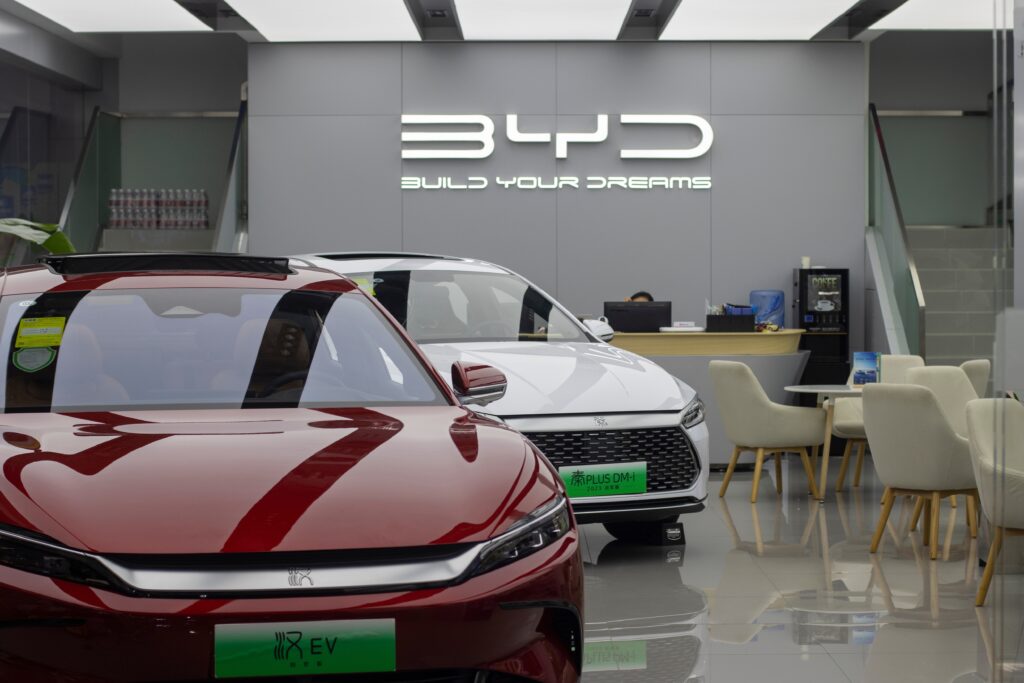https://euronews24.com/volkswagen-avoids-german-plant-closures-with-union-agreement/Tesla, the world’s leading electric vehicle (EV) maker, saw its dominance weaken in 2024. Its sales dropped for the first time in over a decade, with 1.79 million cars delivered—a 1% decline from 2023. Despite repeated price cuts aimed at boosting demand, Tesla struggled to maintain its lead over rivals.
BYD Gains Ground
China’s BYD reported 1.76 million EV sales in 2024, narrowing the gap with Tesla. BYD’s total vehicle sales soared by 41%, reaching over 4.2 million units, driven primarily by hybrid cars. The firm sells 90% of its vehicles in China, where it has outpaced foreign brands like Volkswagen and Toyota. Rising competition, government subsidies, and lower prices fueled BYD’s success in its home market.
Tesla, which also counts China as a vital market, has lost ground as competitors gain momentum. The global EV market has softened in other regions, including the US and Europe. This has led companies like Volkswagen, Ford, and General Motors to cut sales targets or delay EV investments.
Challenges for Tesla
Elon Musk, Tesla’s CEO, attributed weaker sales to rising borrowing costs since 2022, making car purchases pricier. Analysts also point to intensified competition and concerns about Tesla’s brand image as Musk’s political activities draw controversy.
Tesla’s sales fell sharply in early 2024 but rebounded later in the year. The company delivered 495,000 cars in the final quarter, a 2% increase year-on-year, setting a quarterly record. However, this figure missed analysts’ expectations of 500,000, causing Tesla’s share price to drop by 5%.
Christopher Carey of Carnegie Investment Council remarked, “If you don’t meet expectations, it can be tough out there.”
Industry Shifts and BYD’s Global Expansion
Across the auto industry, competition from China has triggered significant changes. Honda and Nissan are in merger talks to counter the growing Chinese presence. Meanwhile, Stellantis CEO Carlos Tavares resigned following a profit warning, highlighting challenges for European carmakers.
Governments are also stepping in. The European Union imposed tariffs of up to 45.3% on Chinese EV imports, while the US implemented a 100% duty on Chinese EVs, with more tariffs expected.
Despite these barriers, BYD continues to expand globally. However, the company faced a setback in Brazil—its largest overseas market—where authorities halted construction of a factory over labor violations. BYD severed ties with the implicated firm and reaffirmed its commitment to Brazilian law.
Tesla and BYD’s competition highlights the shifting landscape in the global EV market as demand fluctuates and rivalries intensify.
